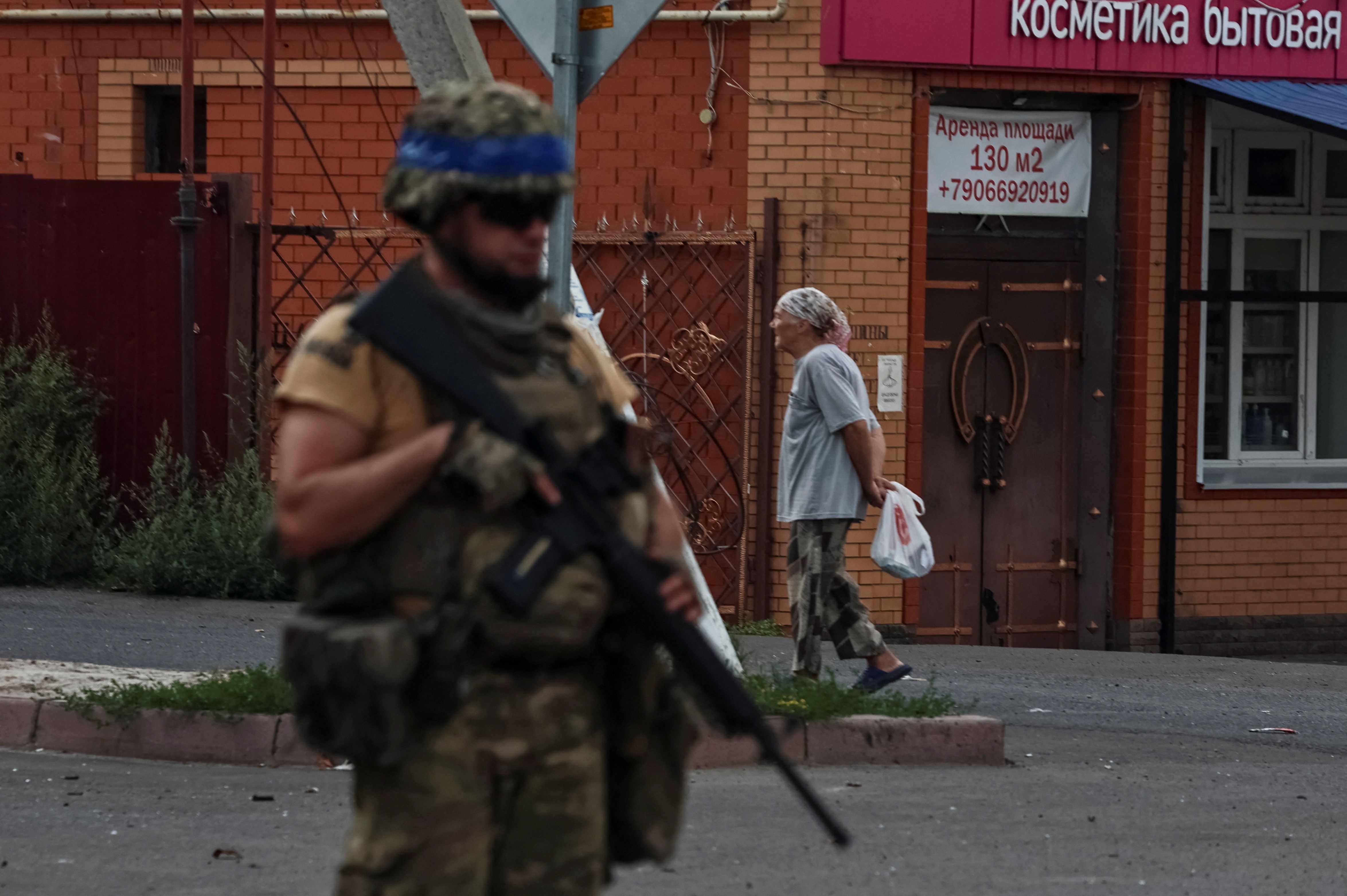Should Americans regard Ukraine’s surprise incursion into Russia’s Kursk region as a turning point in the war, one that could bring Kyiv important new leverage in bargaining over a settlement, if not outright victory? As tempting as it is to believe that the Ukrainian military can aspire to more than stalemate and compromise, there is little about the Kursk offensive that justifies such hopes.
True, Ukraine’s attack seemed to blindside the Kremlin, leading rapidly to the capture of some thirty villages and forcing the evacuation of roughly 200,000 Russian citizens. Ukrainian officials claim to control more than 400 square miles of Russian territory. This initial success has generated an impressive volume of optimistic takes on Western opinion pages and talk shows, while showing increasingly discouraged Ukrainians that their beleaguered forces remain capable of seizing the initiative on the battlefield.
To shift the course of the war, however, Ukraine’s gambit must either divert significant numbers of Russian forces from the fighting in Ukraine itself, seize or destroy strategically important assets inside Russia, or hold territory over the longer term that can become a bargaining chip in negotiations over ending the conflict. None of that appears likely.
So far, the Russian military has not moved large numbers of troops into Kursk from the primary fronts in the Donbass, Zaporizhia, and Kharkiv. Rather, it has relied on substantial numbers of combat reserves that it had held back from Ukraine, coupled with air strikes on Ukrainian armor, troop concentrations, fuel depots, and supply lines. This has effectively prevented Kyiv from diverting its already stretched manpower from the frontlines in Ukraine to reinforce its initial success in Kursk. To provide cover for the incursion, Ukraine moved air defense assets toward the border with Russia, but this exposed their positions to devastating Russian strikes. As a result, Ukraine’s rapid early advances have slowed substantially, raising profound doubts about its capacity to hold captured territory for long.
Had Ukraine managed to capture the Kursk nuclear power plant, one of the largest in Russia, its bargaining power over the Kremlin might have grown quite substantially. The Russian military would have been hard-pressed to dislodge forces holding the plant without damaging or destroying the facility, and Ukrainian occupiers could have wielded the threat of releasing radiation as leverage over Putin’s demands in any negotiations. But Ukrainian forces have fallen far short of reaching that objective and have little prospect of attaining it now that Russia has mobilized forces defending the plant.
If the Kursk incursion was meant to embarrass Putin and turn up the political pressure inside Russia for ending the war, that, too, seems unlikely. Past Russian battlefield setbacks, such as the forced withdrawals from Kyiv, Kherson, and Kharkiv, had little impact on Putin’s polling numbers. Putin arguably emerged strengthened from his suppression of the Wagner uprising in 2023, the most embarrassing development he has faced since launching the invasion of Ukraine.
Russian television coverage of the incursion suggests the Kremlin is confident it can repel and even exploit the incursion. It initially highlighted humanitarian efforts to support and relocate affected civilians, then in recent days focused on successful Russian counterattacks on Ukraine’s forces and supply lines. Televised images of British- and German-supplied tanks advancing into Kursk, where the Soviet Red Army fought the largest tank battle in history against Nazi invaders, could stoke patriotic feelings in Russia and reinforce Putin’s arguments that NATO is both orchestrating and enabling Ukrainian attacks.
Indeed, rather than creating pressures inside Russia to end the war, Ukraine’s Kursk gambit could bolster Russia’s hawks, who have long complained that Putin has been too reluctant to mobilize and employ Russia’s full military capabilities in Ukraine. The combination of their criticism and the vulnerabilities created by Ukraine’s diversion of its most effective troops into Kursk may finally persuade Putin to cast aside his slow attrition strategy in favor of pursuing a decisive breakthrough of Ukrainian defenses.
And if the White House is correct that Ukraine launched the attacks on Kursk without America’s blessing, the incident may reinforce those in Washington who argue that it is imprudent to provide long-range strike weapons to a Zelensky regime that is prone to recklessness.
More than 20 years ago, General David Petraeus issued a famous challenge following the start of the Iraq War: “Tell me how this ends.” The answer in Ukraine remains no clearer today than it has been throughout the two-and-a-half years of Russia’s invasion. The Kursk incursion has shown that Ukraine can still capture headlines, but securing large amounts of Russian-held territory and shifting the course of the war seems to be beyond its reach.
















